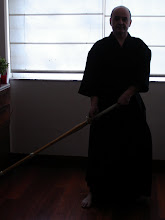NEW YORK (Reuters Health) - Hormone replacement therapy may pose little risk to younger women, and could even help some aspects of their health - but any benefit appears to disappear as women age, according to a new study.
Among more than 70,000 postmenopausal women, some of whom had elected to take hormone replacement therapy (HRT), younger HRT-users were less likely to die from all causes over a nearly 10-year period than women of the same age who had never taken HRT.
However, as women aged, taking HRT was no longer associated with a lower risk of death.
"Whatever benefits there are for younger women, they don't really persist for older women," study author Dr. Daniel Stram of the Keck School of Medicine in California told Reuters Health.
HRT has remained controversial since 2002, when the Women's Health Initiative, a massive government-sponsored clinical trial investigating HRT's benefits, was abruptly halted. Researchers stopped the study when they found that women on HRT were not only not enjoying any protection from heart disease, they were showing higher rates of heart attack, stroke, breast cancer and blood clots than placebo users.
This week, investigators revealed in still another study that women who took HRT had more advanced breast cancers and were more likely to die from them than women who took a placebo.
As a result, experts now advise that while HRT is effective at relieving menopausal symptoms -- like hot flashes and vaginal dryness -- women should take it at the lowest dose and for the shortest time possible.
In the meantime, researchers are still analyzing data to tease out the health effects, both positive and negative, associated with hormone replacement.
In the current report, published in the journal Menopause, Stram and his team reviewed data collected from 71,237 postmenopausal women, some of whom had elected to take HRT. They found that, among women younger than 65, those who took HRT were at least 45 percent less likely to die during an 8- or 9-year period than those who never took hormones. Even women up to age 74 experienced a slightly lower death rate when taking HRT.
By age 75, however, death rates became equal among HRT-users and never-users.
Given the mix of evidence about HRT, however, it's too soon to say that hormones are good for younger women, cautioned Dr. Graham A. Colditz at Washington University School of Medicine in Missouri, where he is associate director of the Siteman Cancer Center. Instead, this and other studies suggest that any benefit, if it exists, disappears as women age. "The older they get, the longer they take (hormones), the less benefit they seem to get from taking them," Colditz told Reuters Health.
One reason studies show different effects of HRT may stem from differences in how the studies are designed, he added. In the current study, women chose whether or not they wanted to take HRT, while in others - such as the halted government clinical trial - investigators randomly assigned women to receive either HRT or placebo.
It's possible that women who choose to take HRT are healthier overall than other women their age, suggested Colditz, who was not involved in the current study.
It's also not clear why, biologically, HRT might have different effects on younger and older women, he added. "I hope some of the ongoing studies will give us a bit of insight into this."
SOURCE: link.reuters.com/bak69p Menopause, published online September 27, 2010
By Alison McCook
Un cerdo pintor , claro...
Hace 7 años




No hay comentarios:
Publicar un comentario